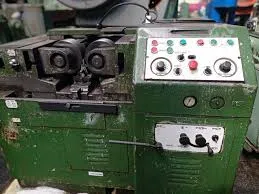
-
 Afrikaans
Afrikaans -
 Albanian
Albanian -
 Amharic
Amharic -
 Arabic
Arabic -
 Armenian
Armenian -
 Azerbaijani
Azerbaijani -
 Basque
Basque -
 Belarusian
Belarusian -
 Bengali
Bengali -
 Bosnian
Bosnian -
 Bulgarian
Bulgarian -
 Catalan
Catalan -
 Cebuano
Cebuano -
 Corsican
Corsican -
 Croatian
Croatian -
 Czech
Czech -
 Danish
Danish -
 Dutch
Dutch -
 English
English -
 Esperanto
Esperanto -
 Estonian
Estonian -
 Finnish
Finnish -
 French
French -
 Frisian
Frisian -
 Galician
Galician -
 Georgian
Georgian -
 German
German -
 Greek
Greek -
 Gujarati
Gujarati -
 Haitian Creole
Haitian Creole -
 hausa
hausa -
 hawaiian
hawaiian -
 Hebrew
Hebrew -
 Hindi
Hindi -
 Miao
Miao -
 Hungarian
Hungarian -
 Icelandic
Icelandic -
 igbo
igbo -
 Indonesian
Indonesian -
 irish
irish -
 Italian
Italian -
 Japanese
Japanese -
 Javanese
Javanese -
 Kannada
Kannada -
 kazakh
kazakh -
 Khmer
Khmer -
 Rwandese
Rwandese -
 Korean
Korean -
 Kurdish
Kurdish -
 Kyrgyz
Kyrgyz -
 Lao
Lao -
 Latin
Latin -
 Latvian
Latvian -
 Lithuanian
Lithuanian -
 Luxembourgish
Luxembourgish -
 Macedonian
Macedonian -
 Malgashi
Malgashi -
 Malay
Malay -
 Malayalam
Malayalam -
 Maltese
Maltese -
 Maori
Maori -
 Marathi
Marathi -
 Mongolian
Mongolian -
 Myanmar
Myanmar -
 Nepali
Nepali -
 Norwegian
Norwegian -
 Norwegian
Norwegian -
 Occitan
Occitan -
 Pashto
Pashto -
 Persian
Persian -
 Polish
Polish -
 Portuguese
Portuguese -
 Punjabi
Punjabi -
 Romanian
Romanian -
 Russian
Russian -
 Samoan
Samoan -
 Scottish Gaelic
Scottish Gaelic -
 Serbian
Serbian -
 Sesotho
Sesotho -
 Shona
Shona -
 Sindhi
Sindhi -
 Sinhala
Sinhala -
 Slovak
Slovak -
 Slovenian
Slovenian -
 Somali
Somali -
 Spanish
Spanish -
 Sundanese
Sundanese -
 Swahili
Swahili -
 Swedish
Swedish -
 Tagalog
Tagalog -
 Tajik
Tajik -
 Tamil
Tamil -
 Tatar
Tatar -
 Telugu
Telugu -
 Thai
Thai -
 Turkish
Turkish -
 Turkmen
Turkmen -
 Ukrainian
Ukrainian -
 Urdu
Urdu -
 Uighur
Uighur -
 Uzbek
Uzbek -
 Vietnamese
Vietnamese -
 Welsh
Welsh -
 Bantu
Bantu -
 Yiddish
Yiddish -
 Yoruba
Yoruba -
 Zulu
Zulu
Exploring Various Types of Thread Rolling Machines in Manufacturing Industries
Types of Thread Rolling Machine Factories
Thread rolling is a widely used manufacturing process that transforms a cylindrical blank into a part with threads. This process is essential in the production of fasteners, bolts, screws, and various other components utilized in myriad industries, such as automotive, aerospace, and construction. As the demand for high-precision threaded components continues to rise, understanding the different types of thread rolling machine factories and their capabilities becomes increasingly crucial.
1. Conventional Thread Rolling Machine Factories
Conventional thread rolling machine factories primarily focus on traditional rolling methods. These facilities utilize machines that can perform both tangential and axial thread rolling. Tangential rolling machines use two dies to roll the thread onto the part as it moves between them. Meanwhile, axial rolling machines utilize a single die that moves along the length of the cylindrical part. Such factories generally target medium to large production runs, where efficiency and cost-effectiveness play significant roles. These factories often emphasize speed and precision, ensuring that threaded parts meet stringent dimensional and quality specifications.
2. CNC Thread Rolling Machine Factories
Computer Numerical Control (CNC) thread rolling machine factories represent the cutting edge of thread rolling technology. CNC machines can be programmed to produce complex thread profiles with high precision. These factories leverage automation and intelligent software systems, enabling them to manufacture custom-threaded products tailored to client specifications. CNC thread rolling is especially advantageous for small batch sizes and prototyping, as setup times are substantially reduced through the use of digital designs.
The adaptability of CNC machines makes them ideal for industries requiring specialized and intricate thread patterns. These factories can quickly switch from one project to another, enhancing operational flexibility and minimizing downtime. Additionally, the integration of advanced sensing technology allows for real-time quality control, ensuring that each part is consistently made to exacting standards.
3. High-Speed Thread Rolling Machine Factories
types of thread rolling machine factories

High-speed thread rolling machine factories are designed for maximum output. By employing high-speed machines that can process parts at rapid rates, these factories excel in large-scale production settings. High-speed thread rolling allows manufacturers to significantly reduce lead times and increase throughput, making it a preferred choice for industries with high-volume demands, such as automotive fasteners.
Additionally, high-speed thread rolling not only boosts efficiency but also improves the overall quality of the finished product. The rapid processing minimizes the risk of tool wear and heat generation, which can often affect the integrity of threaded components. These factories often invest in the latest technology to support high-speed operations while maintaining tight tolerances.
4. Specialty Thread Rolling Machine Factories
In contrast to general-purpose thread rolling factories, specialty thread rolling machine factories concentrate on niche markets. These factories cater to specific industries or applications, such as medical devices, aerospace components, or specialty fasteners. They employ unique thread rolling techniques or machinery designed to meet rigorous industry standards.
Specialty factories often embody a high level of craftsmanship, with skilled operators who understand the intricacies of their specific markets. This specialization allows for the exploration of innovative solutions, such as producing non-standard threads that may require unique designs or materials. Quality assurance in these factories is paramount, given that the end products may be used in critical applications where performance and reliability are non-negotiable.
Conclusion
The landscape of thread rolling machine factories is diverse, with each type catering to specific demands within the manufacturing sector. From conventional methods to high-speed production and specialty operations, the capabilities of these factories drive innovation and efficiency in the production of threaded components. As technology continues to evolve, the thread rolling industry will undoubtedly see advancements that enable even greater precision and productivity. Understanding the various types of thread rolling machine factories helps manufacturers make informed decisions to optimize their production processes and meet the ever-changing demands of the market.
